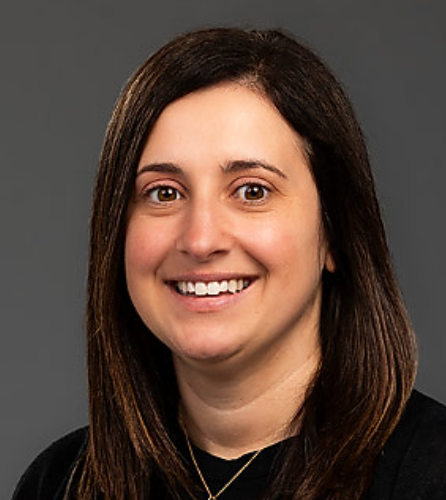News
Article
Longer Hospital Stays Associated with Insomnia Symptoms
Author(s):
A new study found patients who scored high on the Insomnia Severity Index questionnaire had a longer hospital stay length, increased risk of 30-day readmission, and increased risk of 30-day emergency department or urgent care visits.
Julie M. Neborak, MD
Credit: Rush University Medical Center

In a new study, inpatients with pre-admission insomnia symptoms were associated with lower sleep efficiency during hospitalization, longer hospital stay, and increased risk of a readmission.1
Previous studies have explored the association between insomnia and hospitalizations—but focusing on onset insomnia, not pre-admission insomnia symptoms. For instance, a 1998 study found 47% of 222 patients reported they had insomnia or excessive sleepiness while in the hospital. Except, according to their medical records, no patient had physician documentation of insomnia symptoms.2,3
Then, in a 2010 longitudinal observational study, investigators found in 280 hospitalized elderly patients, 21% reported onset insomnia, 38% reported moderate or severe insomnia, and 38% reported sleep disturbances during hospitalization. Here, their severe morbidity, pain, and impaired functional status were significantly linked to insomnia.2,4
Many factors can lead to insomnia in hospitalized patients, such as sleep disorders—like obstructive sleep apnea, restless legs syndrome, and periodic limb movement disorder—psychological and physical factors, particular medical conditions, medications, environment, clinical activities, and poor sleep hygiene.2
As for the environment leading to insomnia, noise plays a factor. Noise may come from the staff talking amongst each other, alarms, pagers, intercoms, doors, medical equipment, or the TV. A study found the noise level in hospitals to be 50 – 70 decibels during the day and about 67 decibels at night. This goes against the Environmental Protection Agency’s recommendation of a maximum of 45 decibels during the day and 35 decibels at night.
The new prospective cohort study, led by Julie M. Neborak, MD, from Rush University Medical Center in Chicago, Illinois, sought to examine to the prevalence of pre-admission insomnia symptoms among inpatients, as well as evaluate the association of insomnia symptoms with in-hospital sleep and clinical outcomes.1
“Among medicine inpatients, there was a high prevalence of pre-admission insomnia symptoms suggestive of possible undiagnosed insomnia,” the investigators wrote.
The study included 568 patients who were ≥50 years old and had no previously diagnosed sleep disorders. Participants filled out the Insomnia Severity Index questionnaire to determine pre-admission insomnia symptoms. The higher the score, the more insomnia symptoms. The investigators also evaluated sleep duration and efficiency with actigraphy. Moreover, participants self-reported 30-day discharge readmissions, emergency department visits, and urgent care visits.
Nearly half (49%) of the participants scored high scores on the Insomnia Severity Index, indicating possible undiagnosed insomnia. The higher scores were also associated with shorter sleep duration (β= -2.6, 95% CI, -4.1 to -1.1; P = .001) and lower sleep efficiency (β=-0.39, 95% CI, -0.63 to -0.15; P = .001).
Then, after adjusting for age, sex, body mass index, and co-morbidities, the investigators found higher Insomnia Severity Index scores were linked with longer hospital stay length (incidence rate ratio [IRR], 1.01; 95%; CI, 1.00 – 1.02; P = .011), increased risk of 30-day readmission (odds ratio [OR], 1.04; 95%; CI, 1.01 – 1.07; P = .018), and increased risk of 30-day emergency department or urgent care visit (OR, 1.04; 95%; CI, 1.00 – 1.07; P = .043).
Thus, patients who had long hospital stays was linked to pre-admission insomnia symptoms—and hence could potentially have insomnia.
References
- Neborak JM, Press VG, Parker WF, et al. Association of pre-admission insomnia symptoms with objective in-hospital sleep and clinical outcomes among hospitalized patients. J Clin Sleep Med. Published online December 29, 2023. doi:10.5664/jcsm.10964
- Koski, R. Treatment of Insomnia in Hospitalized Patients. U.S. Pharmacist. January 20, 2011. https://www.uspharmacist.com/article/treatment-of-insomnia-in-hospitalized-patients. Accessed January 2, 2024
- Meissner HH, Riemer A, Santiago SM, et al. Failure of physician documentation of sleep complaints in hospitalized patients. West J Med. 1998;169:146-149.
- Isaia G, Corsinovi L, Bo M, et al. Insomnia among hospitalized elderly patients: prevalence, clinical characteristics and risk factors. Arch Gerontol Geriatr. 2010;Mar 23 [Epub ahead of print].




